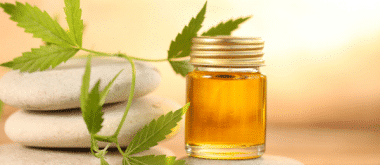Everyone wants to stay young. Resveratrol, a component found in nuts, grapes, and red wine has been discovered as the key to fighting the effects of aging.
Researchers have determined that this ingredient can provide very beneficial effects against aging. As a result of getting more of the component, which is in the beginning stages of being used in certain drugs, specific health problems that arise as a natural result of aging can be curbed.
What is Resveratrol?
Resveratrol is a part of a set of compounds known as polyphenols, which can behave like antioxidants in the body. As previously mentioned, they are found in red wine, certain nuts, berries and specifically, the skin of red grapes. The substance can help to protect the body against potential health problems that can lead to a greater risk of heart disease or cancer.
As a result of these notable benefits, manufacturers have marketed and sold supplements containing resveratrol. Many of these are made from red grape extract or even red wine. The supplements are usually sold online with the promise of aiding in weight loss and even promoting a longer, healthier life.
What Anti-Aging Benefits Come with Taking the Substance?
Researchers came to the conclusion that resveratrol carries certain benefits regarding anti-aging. Their study, published in the journal Science, outlines how resveratrol stimulates the production of SIRT1, a serum that blocks certain illnesses related to aging. It accomplishes this through the faster production of mitochondrial cells. The researchers also learned which gene is responsible for SIRT1 to be produced by the component and came to the conclusion that drugs in clinical trials that include resveratrol may carry certain benefits to combat aging.
What Can the Substance Do and What Does Research Show?

However, the researchers also found there was a bit of controversy surrounding whether the component was actually responsible for the production of SIRT1. This was largely due to early studies pointing to a manmade chemical being responsible for it. They ended up performing research on the chemical and determined that it closely resembled three amino acids naturally found in cells.
From there, the research team examined 2,000 of these to get a better idea of how resveratrol worked concurrently with SIRT1 and swapped out one residue produced by the amino acid. They then introduced the substance and other medications in clinical trials and learned that the result was faster production of mitochondria.
One researcher came to the conclusion that this could, in turn, lead to reversing the effects of aging and that people may be able to live to 150 years old. However, he stated that it could not be possible until more research is performed.
A marine biologist at the Massachusetts Institute of Technology and the president of the Buck Institute for Research on Aging agree that more work needs to be done in spite of the strong evidence. However, they both believe that science is a wonder and that anti-aging properties offered by resveratrol can certainly lengthen people’s lives with time and additional research.





